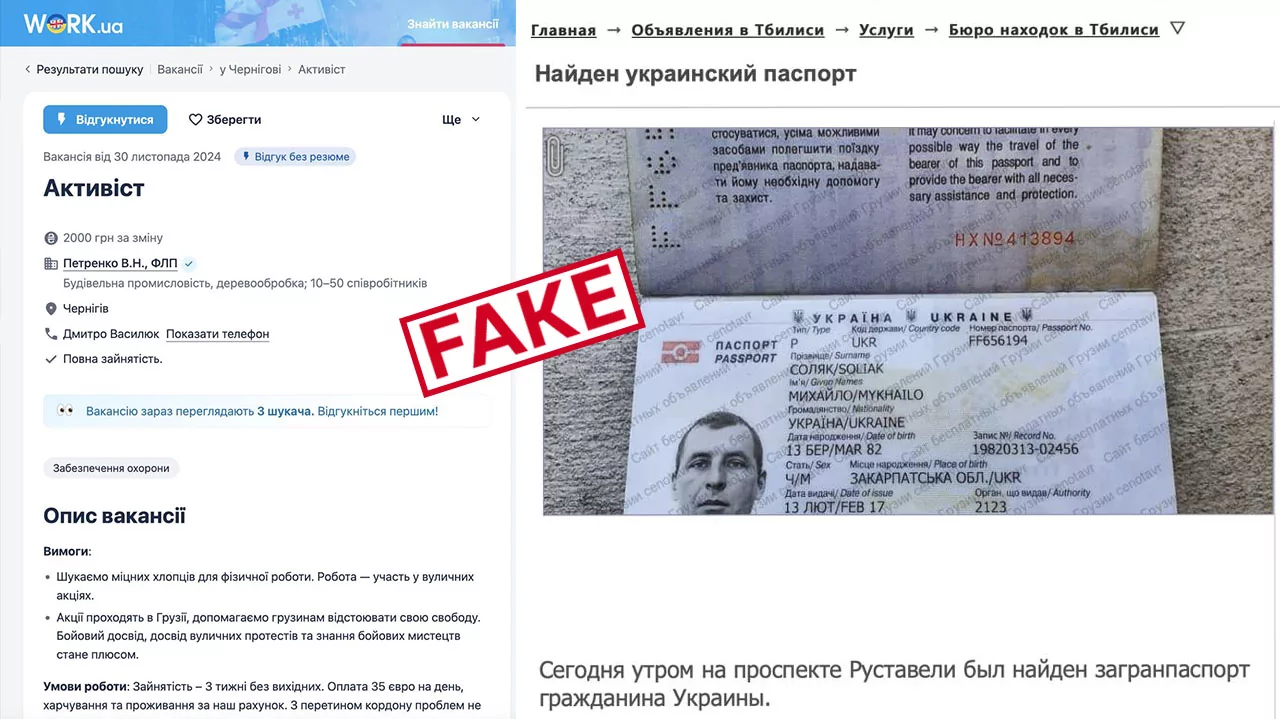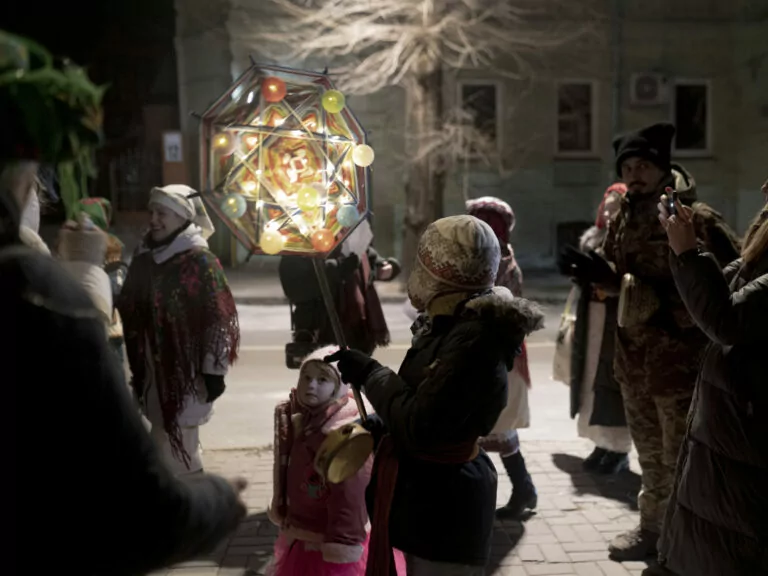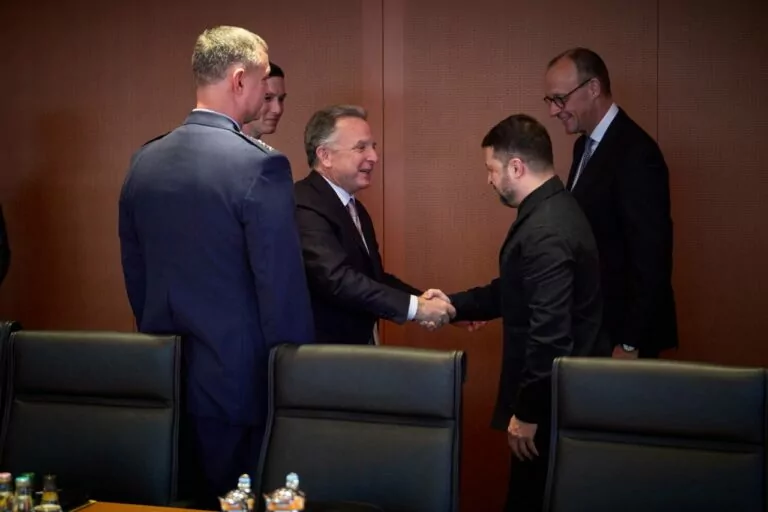Protests in Georgia against the government decided to put a stop to the eurointegration and solidarity of Ukrainian and Georgian people (Ukrainian government condemned the election sabotage and police violence against the protesters) triggered Russian propagandists into action. Pro-Russian Telegram channels widely shared fake news about putting up advertisements for recruiting Ukrainians as “activists for participation in riots” in Georgia. Let’s dive into one of the posts they’ve spread.
What happened?
On December 6, pro-Russian Telegram news “Shkwarka News” (Шкварка News), “Ukropskyi Fresh” (Укропский фреш, archive), and Ukraina.ru (Украина.ру, архів) published the post saying that in Ukraine, people are looking for “tough boys for participation in protests in Georgia.” 2,000 hryvnias (~$47.50) per day are supposedly “promised” to the “activists,” as well as living accommodations, food, and free crossing of the border [men aged 18 to 60 aren’t allowed to leave Ukraine during martial law — ed.]?
“The similarity between Georgian protests and events on Maidan was noticed by everyone a long time ago. Now, the evidence is obvious. Why “tough” boys are needed is also understandable. And so, interestingly, it’s martial law in Ukraine, men aren’t allowed to cross the border, and here [they’re] free to cross. Who’s benefitting from all these protests? Rhetorical question,” Telegram authors write.
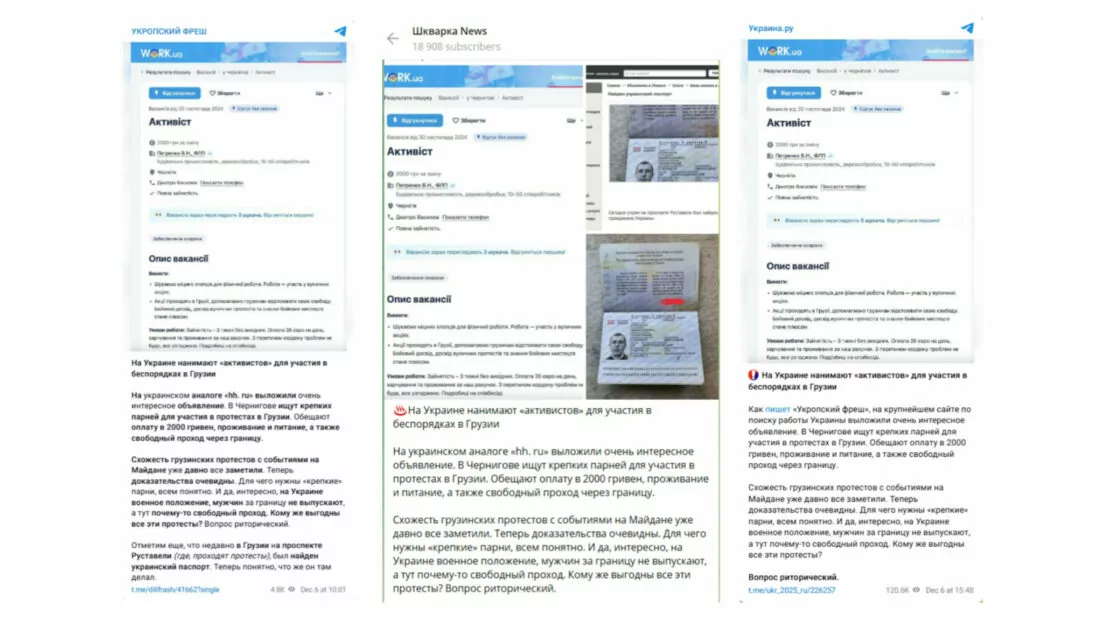
A screenshot attached to the post is presented as evidence. It depicts the advertisement from one of Ukrainian platforms for recruitment and searching for work. A photo of a Ukrainian international passport that supposedly was found in Tbilisi on Rustaveli Ave is also shown as “evidence.”
The news with the corresponding context was also shared in social media Vkontakte and Odnoklassniki (1, 2), on the platform Dzen.ru (archive), a web resource Antifashist (“Антифашист,” archive), and so on. And in the Telegram channel “Yellow plums Belarus” (“Желтые сливы Беларусь,” archive), authors say:

“Ironically, two days ago, the Ukrainian Ministry of Foreign Affairs screamed that Nenka [nenka is one of the Ukrainian words for “mother,” which is sometimes used by people of Ukraine to talk about the country; Russians use it in a derogatory way to refer to Ukraine — ed.] and its citizens aren’t involved into [destabilizing] the situation in Sakartvelo. But the evidence suggests the opposite,” the post says.
Analysis
First, we checked the photo attached to the post, and the Ukrainian international passport that Telegram channels presented as evidence. Authors write that it was found on Rustaveli Avenue in Tbilisi. Such advertisement was reallyposted on the website of free adverts called Cenotavr in a section “Lost and found” (“Burou of found things”).
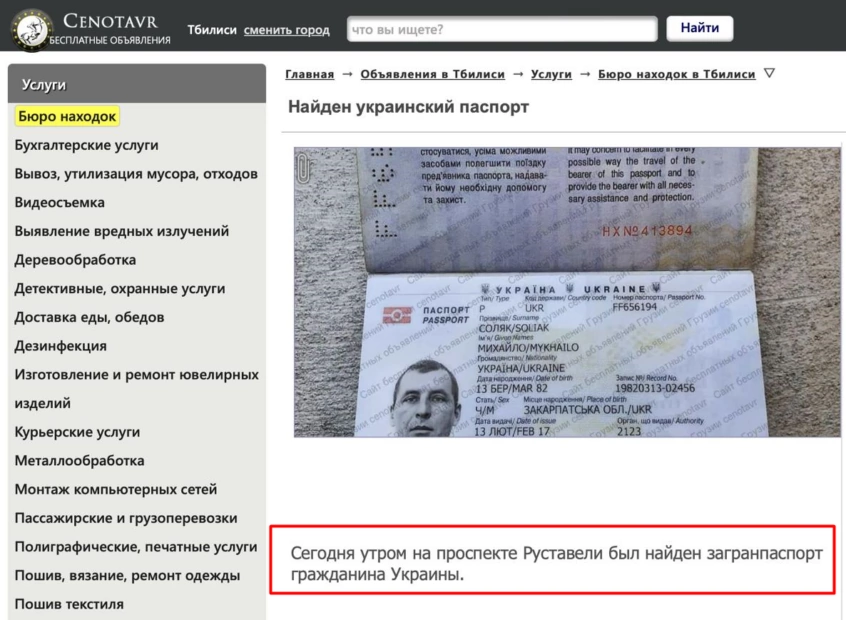
However, using reverse search, we found an advert for this lost passport dating back to December 29, 2020.
It was actually lost in Uzhhorod, a city in the west of Ukraine, on the bus station. The corresponding advert we’ve foundon Facebook, on the page “Bus station of Zakarpattia.”
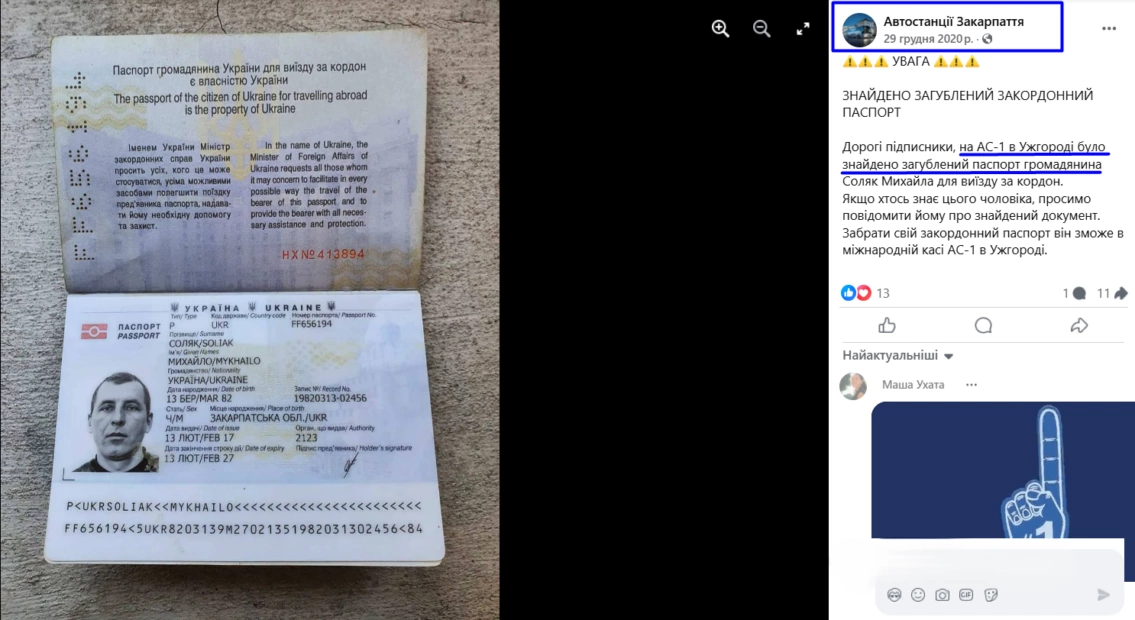
Information in the document on these sources completely matches the passport photo added to the Telegram post. Even the crack on the ground on which the passport is placed matches between the two photos.
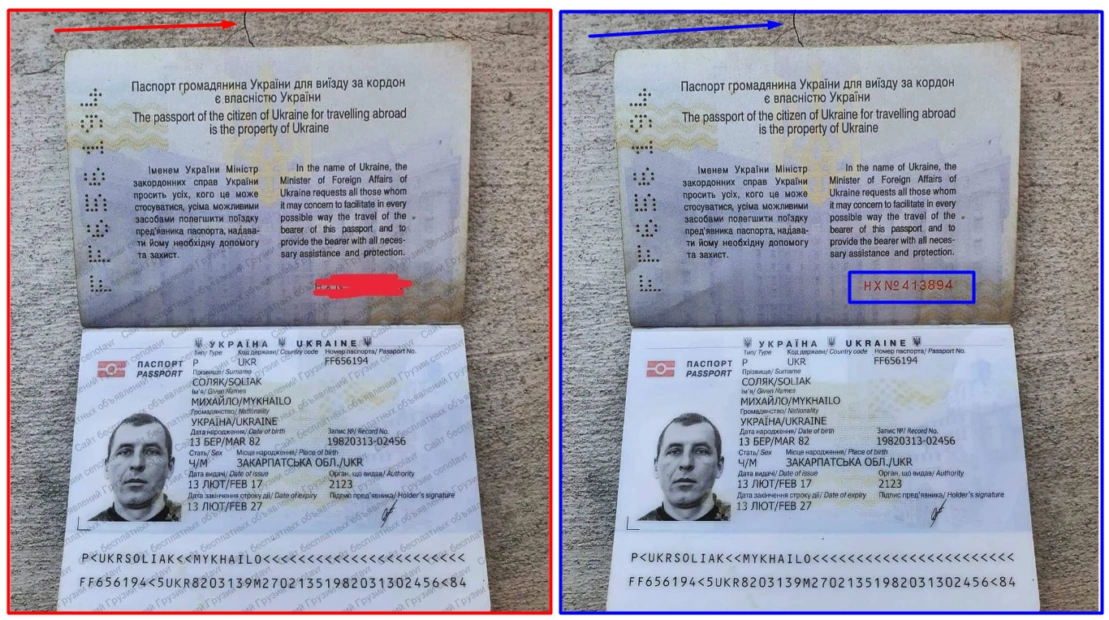
For the next step, because Telegram channels added screenshots with adverts from the Work.ua website, we have checked the vacancies on the platform and made sure that there’s no such advert.
Next, we asked the commentary to Work.ua’s press service and asked to check if such a vacancy was published on the platform on November 30.
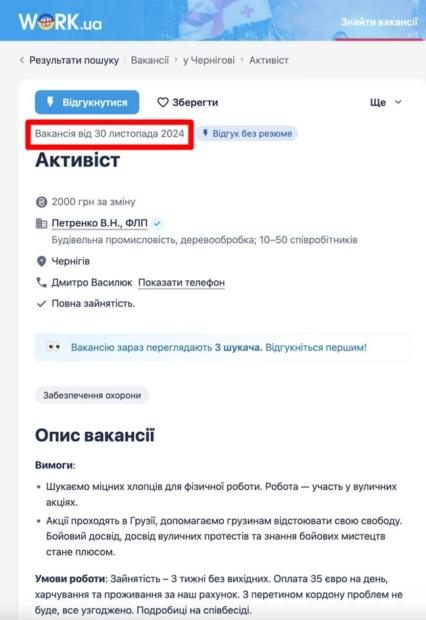
Answering our request, PR manager Work.ua Viktoria Biliakova reported that such a vacancy on the platform wasn’t published:
“Information that is shared in the Russian Telegram channel is untrue. Vacancy for “activist” that’s being discussed wasn’t posted on the Work.ua platform on November 30 or on any other day. So, this screenshot is fake. The head of Work.ua moderation [also] notes that his fakes are usually created via editing the page’s code in browsers. It allows the [perpetrators] to create an illusion that untrue information is published on the website. This approach is technically simple but fools users.”
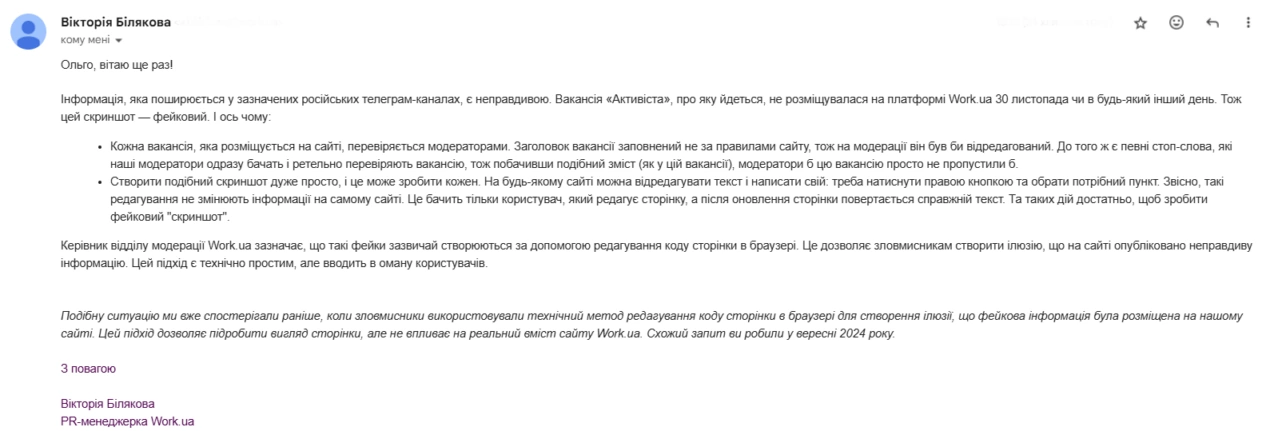
Apart from that, Viktoria Biliakova said that every vacancy that is published on the website is checked by moderators and, because the headline for this “vacancy” isn’t filled according to rules of the platform, it would have been edited out on the moderation stage. And the certain stop words in the headline wouldn’t let this vacancy pass moderation.
So, the news was spread by pro-Russian propagandists to create a picture of Ukraine recruiting people for Georgian protests. Actually such an advert wasn’t published on Work.ua, and the international passport that was presented as evidence found in Tbilisi in 2024 was actually found in Uzhhorod, Ukraine, in 2020.
Conclusion: Fake
Author: Olha Yakovleva
